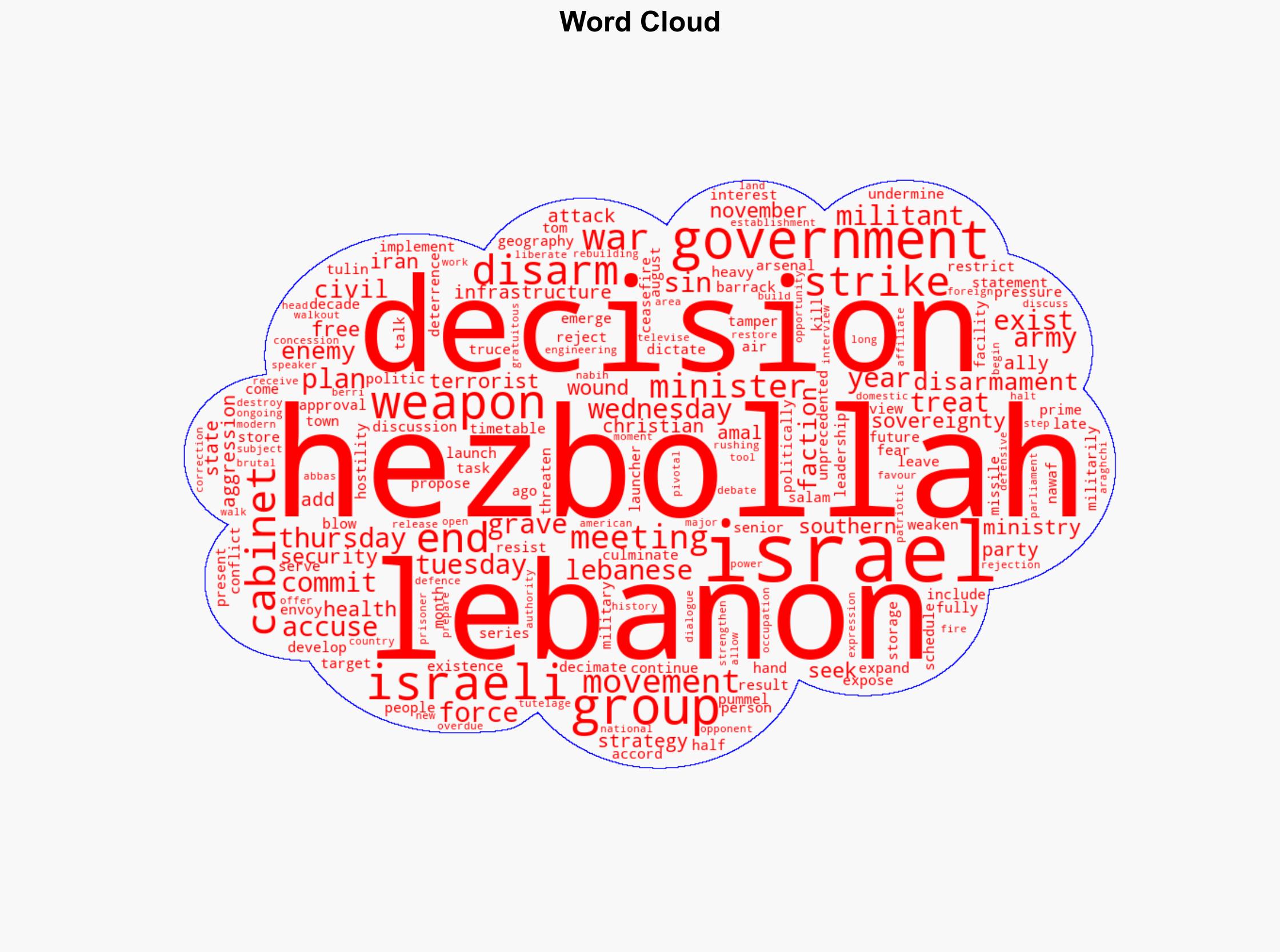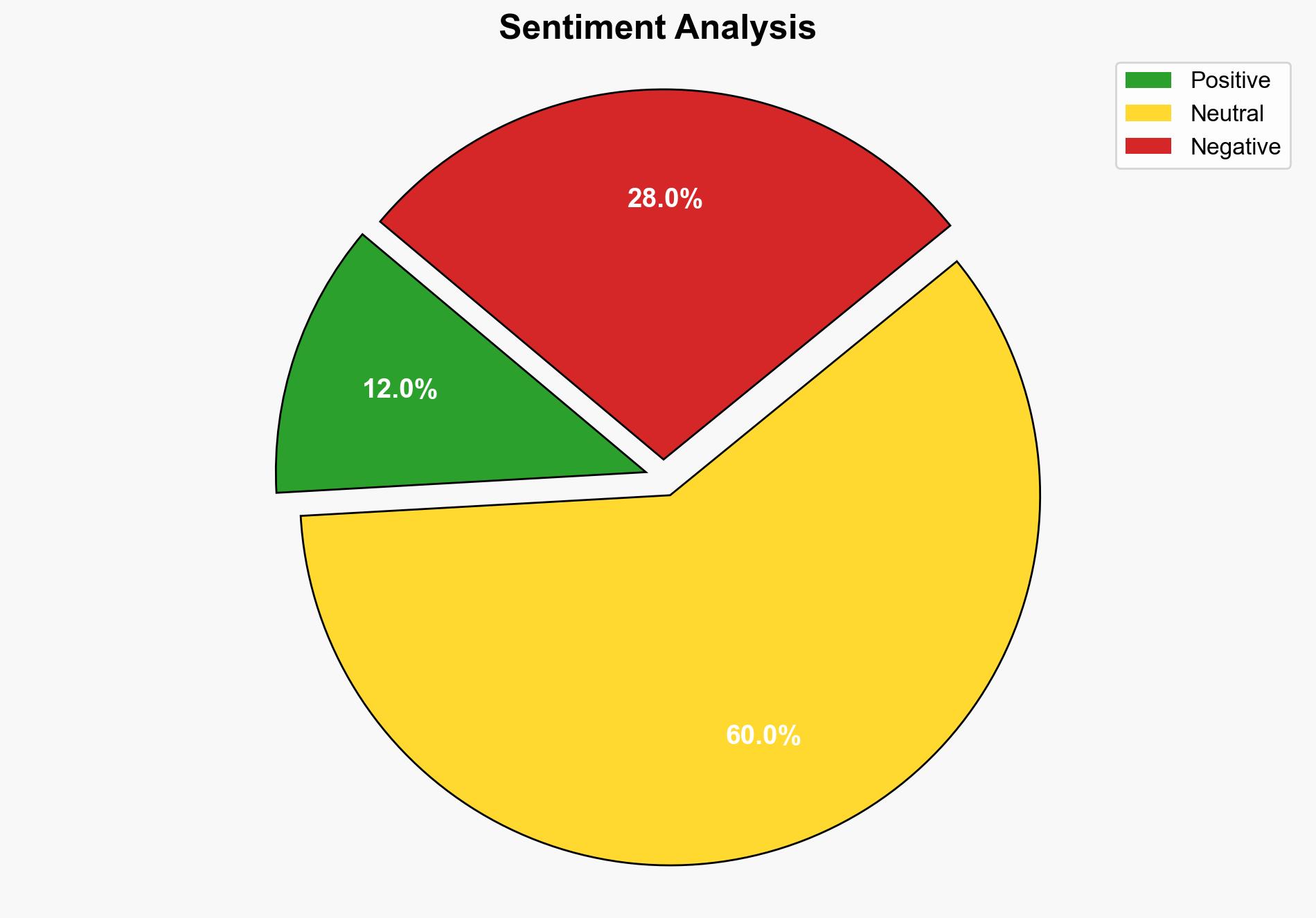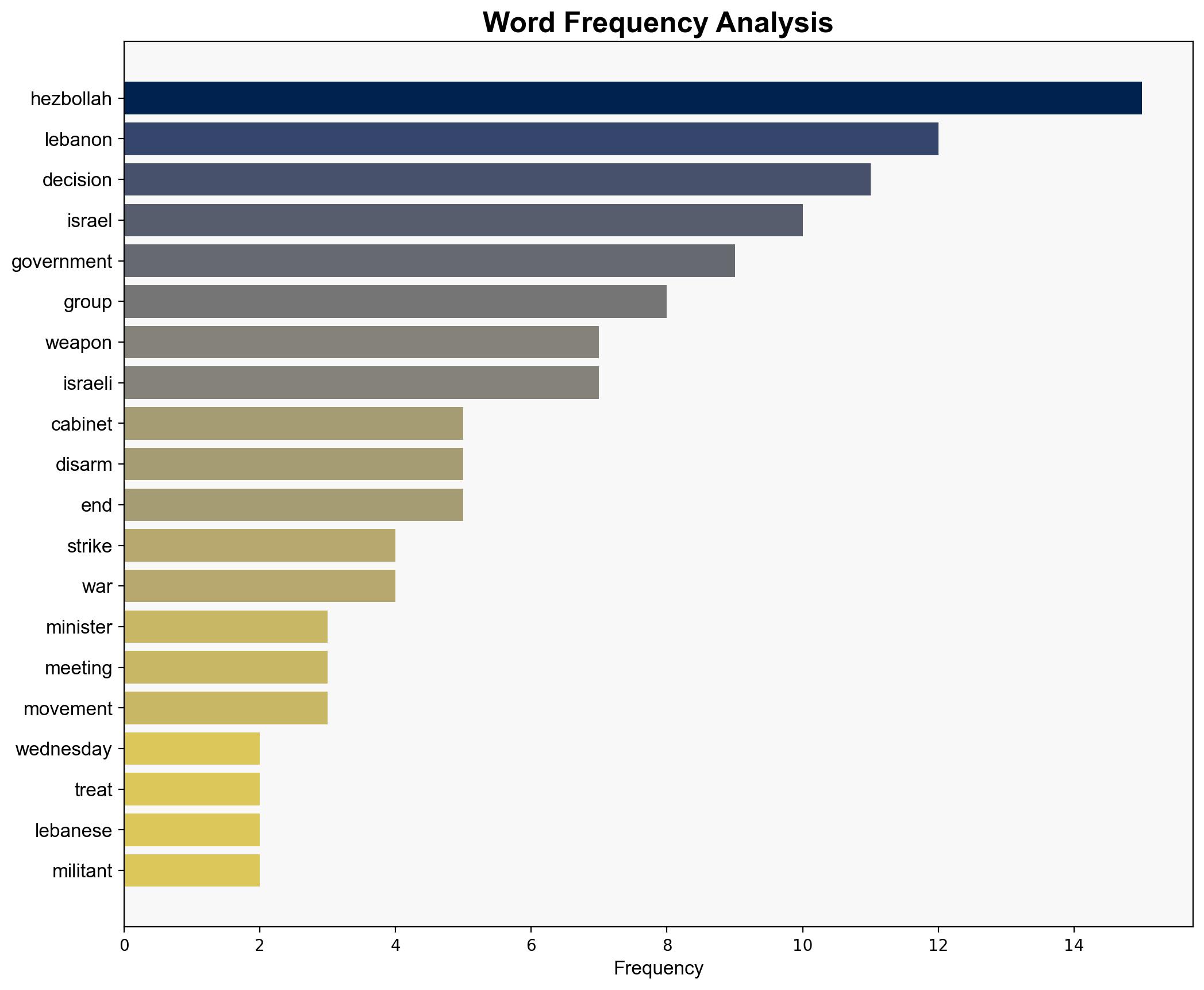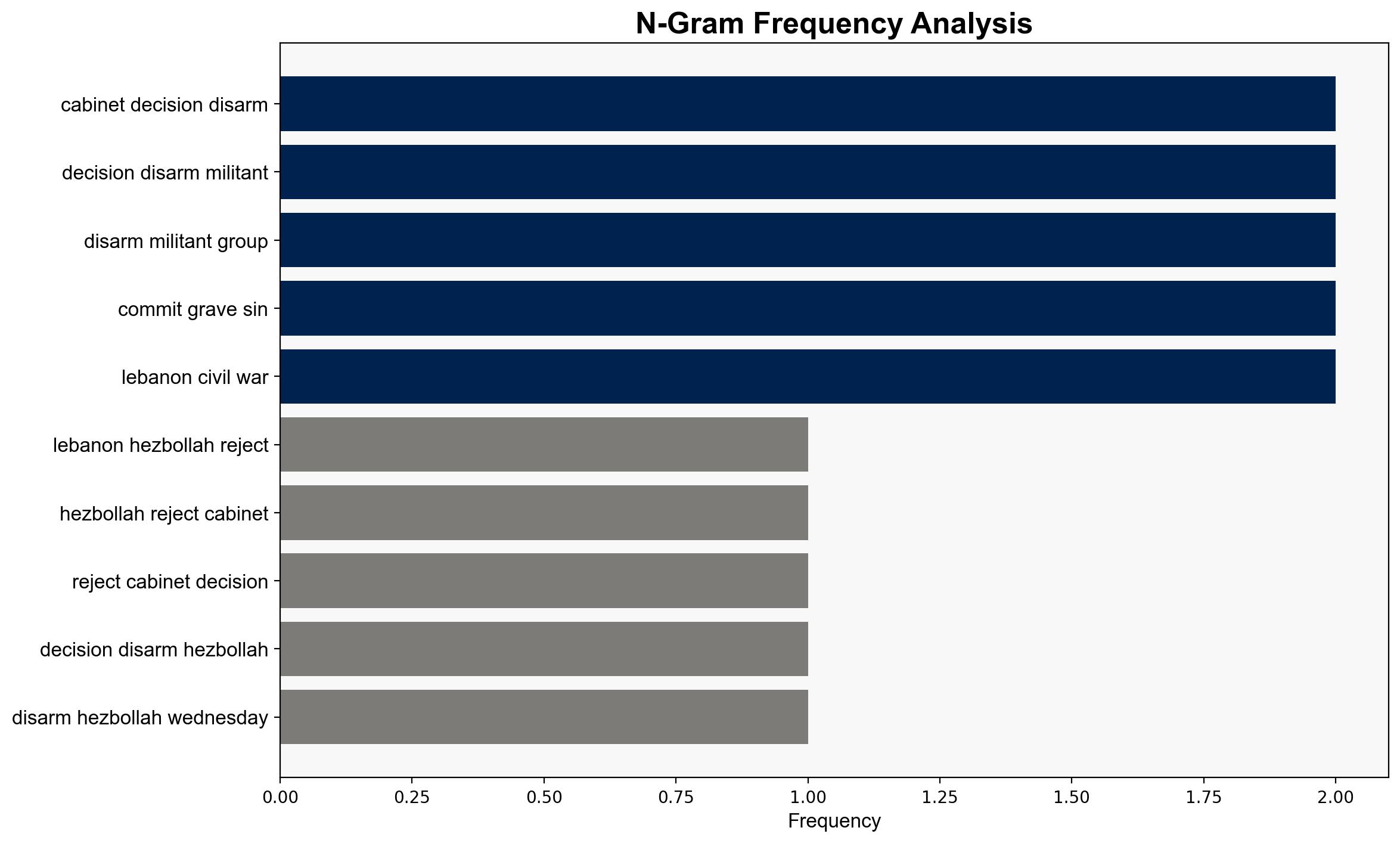Lebanon’s Hezbollah Rejects Cabinet Decision To Disarm It – International Business Times
Published on: 2025-08-06
Intelligence Report: Lebanon’s Hezbollah Rejects Cabinet Decision To Disarm It – International Business Times
1. BLUF (Bottom Line Up Front)
The Lebanese government’s decision to disarm Hezbollah has been met with firm rejection by the group, indicating a potential escalation of tensions within Lebanon and with Israel. The most supported hypothesis is that Hezbollah will maintain its arms to preserve its influence and deterrence capability against Israel. Confidence in this assessment is moderate due to the complex interplay of regional dynamics and internal Lebanese politics. Recommended action includes diplomatic engagement with regional stakeholders to de-escalate tensions and support for Lebanese state sovereignty.
2. Competing Hypotheses
1. **Hezbollah will maintain its arms and resist disarmament efforts**: Hezbollah perceives disarmament as a threat to its strategic deterrence against Israel and its political influence within Lebanon. This hypothesis is supported by Hezbollah’s historical resistance to disarmament and its framing of the decision as a grave sin against Lebanese sovereignty.
2. **Hezbollah may negotiate partial disarmament in exchange for political concessions**: Under international pressure and potential internal political shifts, Hezbollah might agree to a phased disarmament plan if it secures significant political or economic concessions from the Lebanese government or international actors. This hypothesis is less supported due to Hezbollah’s strong rhetoric and recent military engagements.
3. Key Assumptions and Red Flags
– **Assumptions**: Hezbollah’s primary motivation is to maintain its deterrence capability against Israel. The Lebanese government is assumed to have the capacity to enforce disarmament, which may not be accurate given Hezbollah’s entrenched position.
– **Red Flags**: The potential for Hezbollah to leverage its political allies to block disarmament efforts. The lack of clear international consensus on how to handle Hezbollah’s armament.
– **Blind Spots**: The internal dynamics within Hezbollah and its decision-making processes are not fully transparent, leading to potential underestimation of its willingness to compromise.
4. Implications and Strategic Risks
– **Escalation Risks**: Continued Israeli airstrikes and Hezbollah’s refusal to disarm could lead to renewed conflict, destabilizing Lebanon further.
– **Geopolitical Impact**: Increased tensions could draw in regional powers, complicating the security landscape in the Middle East.
– **Internal Lebanese Stability**: The decision could exacerbate sectarian divisions, weakening the Lebanese government’s authority and potentially leading to civil unrest.
5. Recommendations and Outlook
- Engage in diplomatic dialogue with key regional actors, including Iran and Israel, to reduce tensions and explore potential compromises.
- Support initiatives that strengthen Lebanese state institutions to handle internal security challenges effectively.
- Scenario Projections:
- **Best Case**: Hezbollah agrees to a phased disarmament plan, leading to improved Lebanese stability.
- **Worst Case**: Full-scale conflict erupts between Hezbollah and Israel, destabilizing the region.
- **Most Likely**: Continued stalemate with sporadic violence, maintaining the status quo.
6. Key Individuals and Entities
– Nawaf Salam
– Nabih Berri
– Abbas Araghchi
– Hezbollah
– Amal Movement
7. Thematic Tags
national security threats, regional focus, counter-terrorism, geopolitical stability





